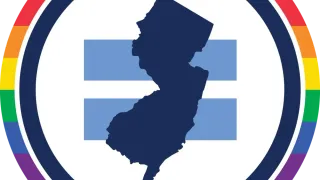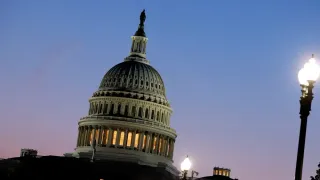August 23, 2015
States File Another Lawsuit Over Obama Transgender Rules
Paul J. Weber READ TIME: 3 MIN.
Texas and four other Republican-led states filed another lawsuit Tuesday seeking to roll back the Obama administration's efforts to strengthen transgender rights, saying new federal nondiscrimination health rules could force doctors to act contrary to their medical judgment or religious beliefs.
The lawsuit is the second this summer in which conservative states have sued over recent moves by federal officials that amount to a defense of transgender persons in U.S. public schools and the health care system.
Social conservatives claimed victory Sunday when a federal judge in Texas halted an Obama administration directive requiring schools to let transgender students use bathrooms consistent with their gender identity. Now they're asking that same court to block new regulations intended to ban discrimination by doctors, hospitals and insurers against transgender persons.
The latest lawsuit contends that the rules, which were finalized in May, could force doctors to help with gender transition contrary to their religious beliefs or medical judgment. Transgender rights advocates called that a far-fetched hypothetical, saying a person would not approach a doctor who lacked suitable experience and expertise.
Joining Texas in the lawsuit are Wisconsin, Kentucky, Nebraska and Kansas, along with the Christian Medical and Dental Association and Franciscan Alliance, an Indiana-based network of religious hospitals.
"It discards independent medical judgment and a physician's duty to his or her patient's permanent well-being and replaces them with rigid commands," the lawsuit states.
Jillian Weiss, executive director of the Transgender Legal Defense and Education Fund, said the new federal rules were groundbreaking and pointed out that other states already had similar protections. Ten states and Washington, D.C., require private insurers to cover transgender health care, while six states plus the nation's capital cover such services through their Medicaid programs, according to advocates.
"The only thing a doctor is obliged to do is treat all patients, including trans patients, with dignity and respect and to make treatment decisions free from bias," Weiss said. "If a doctor has a sound, evidence-based, medical reason to delay transition care for a specific patient, that would be respected under the regulations."
The Obama administration finalized the regulations around the time it issued its directive to public schools regarding transgender students. Thirteen states signed on to fight that directive, including three involved in the latest lawsuit, and won a temporary injunction this week from U.S. District Judge Reed O'Connor.
O'Connor ruled that the federal anti-discrimination law known as Title IX "is not ambiguous" about sex being defined as "the biological and anatomical differences between male and female students as determined at their birth." He also said federal officials skirted rules requiring a chance for input and feedback before new rules were implemented.
The Justice Department has not said whether it will appeal the ruling.
The new health regulations broadly affect the health care system because service providers who accept federal funding have to comply. The U.S. Department of Health and Human Services did not immediately respond to an email seeking comment on the lawsuit.
An increasing number of large employers are voluntarily covering transgender treatment, following medical recognition that it can lead to healthier outcomes overall for the individuals involved. The number was up to 418 last year, from none in 2002, according to federal health officials. Medicare began covering medically necessary sex-reassignment surgery in 2014. Traditionally its medical necessity was questioned, and it carried a social stigma.






